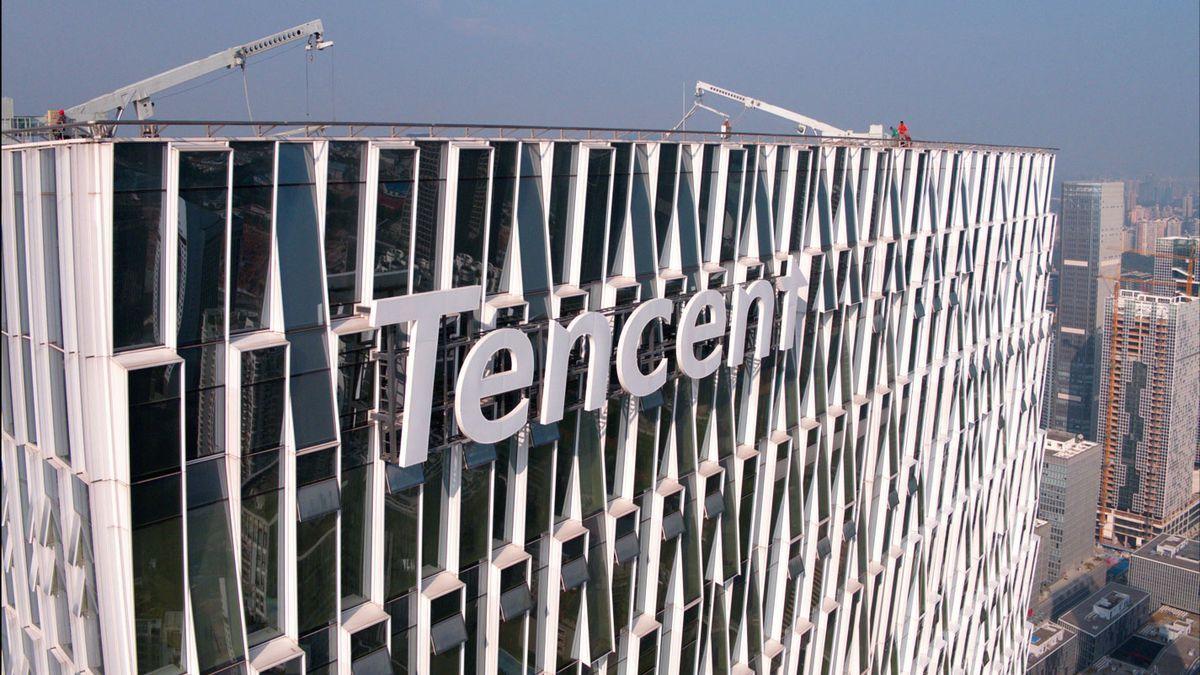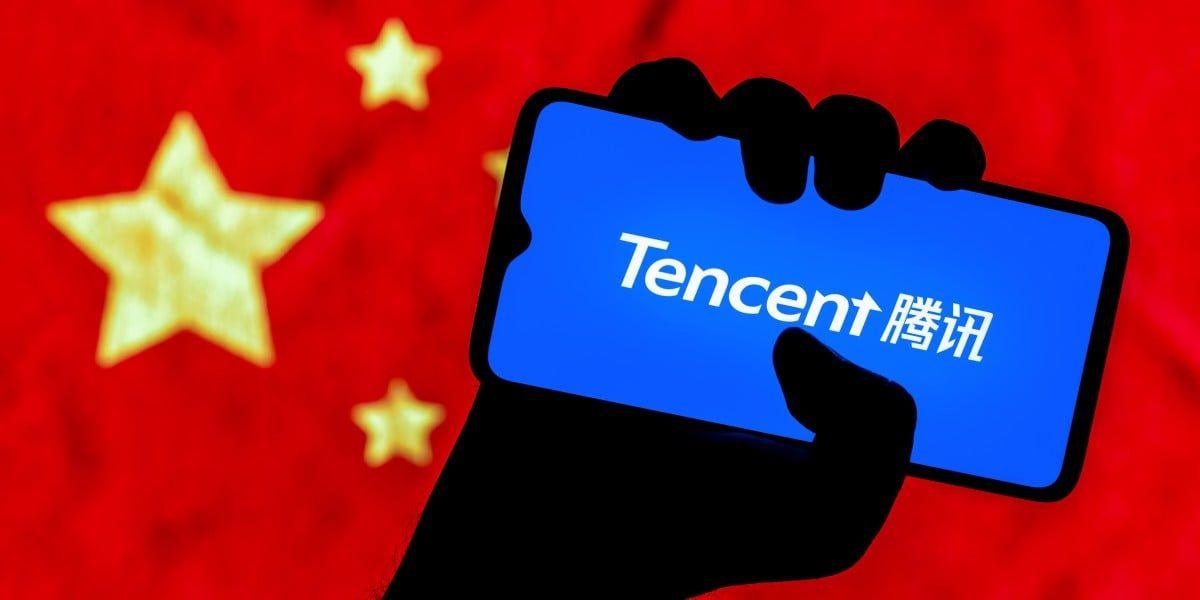Tencent Slows GPU Rollout as DeepSeek Breakthrough Reshapes AI Landscape
2 Sources
2 Sources
[1]
Tencent slows pace of GPU rollout thanks to DeepSeek
Chinese giant says locals are more efficient than Western hyperscalers, and has tiny capex to prove it Chinese tech giant Tencent has slowed the pace of its GPU rollout since implementing DeepSeek. Chief Strategy Officer James Mitchell revealed the slowdown during the company's Q4 2024 earnings call, when asked how capital expenditure on AI will impact margins and profits. Mitchell replied that Tencent's capital expenditure on GPUs mostly goes towards its advertising and games businesses, which both deliver strong returns. Tencent also uses GPUs to train large language models, and Mitchell said there was a period of time last year when there was a belief that every new generation of large language model required in order of magnitude more GPUs," he added. "That period of time ended with the breakthroughs that DeepSeek demonstrated," he said. "And now, the industry and we, within the industry, are getting much higher productivity on a large language model training from existing GPUs without needing to add additional GPUs at the pace previously expected." Tencent's capex for FY 2024 reached CN¥76.8 billion ($10.6 billion), a sum more than triple its 2023 spending. Plenty of that went on servers and GPUs. President Martin Lau said since Q4 2024 the company "stepped up our purchase of GPUs" and believes they will "accelerate the revenue growth of our overall cloud services." Mitchell said 2025 capex will be a "low teens percentage of our revenue". The company's FY 2024 revenue was CN¥660.3 billion ($91.1 billion) and grew eight percent year-over-year. Let's therefore assume Tencent's FY2025 revenue will be $100 billion and its capex $13 billion. That guesstimate leaves Tencent spending vastly less than the $80 billion Microsoft plans to spend this year and the $100 billion Amazon intends to shell out0. Mitchell said Tencent is spending more than any other Chinese tech company, which he thinks all have lower capex than Western peers. "That's because the Chinese companies are generally prioritizing efficiency and utilization - efficient utilization of the GPU servers," he said. "And that doesn't necessarily impair the ultimate effectiveness of the technology that's being developed. And I think DeepSeek's success really sort of symbolizes and demonstrated that reality." Tencent posted a $31.6 billion profit for the year, up 40 percent year-on-year. Q4 revenue was $24 billion, an 11 percent jump, and profit was rose 29 percent to $7.9 billion. Monthly active user numbers on the company's flagship Weixin and WeChat social messaging services grew just three percent in FY 2024, but there are 1.385 billion of them and 262 million pay subscriptions for premium services. Tencent plans to add AI-powered search, language input, and content generation to Weixin and WeChat. Company president Martin Lau said Tencent is already considering how to add agentic AI services to Weixin and WeChat - and how to have them interact with the "Mini Programs" that add functionality like e-commerce, food delivery, or streaming entertainment. "If you look at the activities within Weixin it is actually very, very diversified," he said. "There are a lot of transactions that go through Weixin. And there's a multitude of Mini Programs, which actually allowed all sorts of different activities to be carried out." "We can easily build an agent based on a model that actually can connect to a lot of the different Mini Programs and have activities and complex tasks completed for our users." More cloudy services for training AI models are on the way, as are inferencing-as-a-service offerings. Chairman and CEO Pony Ma said Tencent's results reflect its "shift toward high-quality revenue streams." Investors seem to have assumed this would happen, as Tencent's share price popped a couple of percent but then settled to the same level at which it opened the week. The company's shares are, however, up 42 percent in 2025 alone. ®
[2]
Fewer NVIDIA AI GPUs Needed After DeepSeek, Says $600 Billion Chinese Tech Firm's Strategy Head
This is not investment advice. The author has no position in any of the stocks mentioned. Wccftech.com has a disclosure and ethics policy. Despite mega cap US firms allocating billions of dollars in capital expenditure spending for AI GPUs, Chinese multinational technology firm Tencent's chief strategy officer James Mitchell believes that DeepSeek's AI breakthroughs demonstrate that such spending might not be needed. DeepSeek's claims of having developed its AI models similar in capabilities to some American counterparts but at a fraction of a cost appear to have permanently altered the stock market. Their biggest victim was NVIDIA's stock, which has yet to recover nearly $600 billion in losses during January's selloff. NVIDIA's GTC conference earlier this week failed to impress investors either, and the stock has remained flat despite CEO Jensen Huang pointing out multiple trillion dollar markets for his firm's products. In a recent talk, Tencent CSO James Mitchell shared that one use case his firm had for spending money on NVIDIA's AI GPUs was to train large language models or LLMs. Tencent released its Hunyuan Turbo S AI model a little over a month after DeepSeek's products gained popularity in January. The firm aimed at the Chinese startup with its products as it claimed that its model could respond to queries in less than a second. However, while competing with DeepSeek to develop the fastest AI models, Tencent also believes that the startup's training breakthroughs significantly reduce AI development costs. DeepSeek claims to have reduced AI development costs by using advanced software engineering, which allowed it to access a GPU's core functions. Typically, engineers rely on NVIDIA's CUDA software to use the chips, but the convenience comes at the expense of tighter control over the products. Commenting on capital spending for AI GPUs, Mitchell shared that "A second use of CapEx was GPUs for large language model training," This use case was important before DeepSeek shared its model development process. The Tencent CSO added that "there was a period of time last year when there was a belief that every new generation of large language model required an order of magnitude more GPUs." However, according to him, DeepSeek changed this perception, at least among Chinese firms. "That period of time ended with the breakthroughs that DeepSeek demonstrated," Mitchell said. While he didn't share how, Mitchell outlined that after the breakthroughs, "the industry and we within the industry are getting much higher productivity on a large language model training from existing GPUs without needing to add additional GPUs at the pace previously expected." Chinese firms are restricted from buying NVIDIA's latest AI GPUs, such as its Blackwell and Hopper products. The restrictions have forced them to rely on older chips or large GPU clusters to overcome the limitations of limited computing power. Tencent has claimed that its Turbo S model has beaten DeepSeek's products in math, reasoning and other AI capabilities. Industry sources believe Chinese firms are interested in working with Huawei and its Ascend AI chips as they navigate the chip blockade. Like NVIDIA, Huawei also offers its chip customers with software to control the chips. However, purportedly, DeepSeek has tested the software and found it lagging to NVIDIA's products. NVIDIA's shares, on the other hand, are yet to recover their pre-January selloff highs. The stock is down by 14% year-to-date as investors wait for more data for its demand to materialize. Mitchell's firm trades on the OTC markets and has a market cap of $601 billion.
Share
Share
Copy Link
Tencent's Chief Strategy Officer reveals a slowdown in GPU deployment following DeepSeek's efficiency breakthroughs, potentially reshaping the AI industry's approach to hardware investments.

DeepSeek's Breakthrough Reshapes AI Hardware Strategy
In a significant development for the AI industry, Chinese tech giant Tencent has announced a slowdown in its GPU rollout, citing breakthroughs demonstrated by AI startup DeepSeek. This shift in strategy could have far-reaching implications for the global AI hardware market and the approach to large language model (LLM) training.
Tencent's GPU Strategy Shift
During Tencent's Q4 2024 earnings call, Chief Strategy Officer James Mitchell revealed that the company has reduced the pace of its GPU deployment. Mitchell explained that there was a period last year when the industry believed that each new generation of large language models required an order of magnitude more GPUs. However, this perception changed dramatically with DeepSeek's recent advancements
1
.Efficiency Gains in LLM Training
The key takeaway from DeepSeek's breakthrough is the significant increase in productivity for LLM training using existing GPUs. Mitchell stated, "Now, the industry and we, within the industry, are getting much higher productivity on large language model training from existing GPUs without needing to add additional GPUs at the pace previously expected"
1
.Capital Expenditure and Industry Comparison
Tencent's capital expenditure for FY 2024 reached CN¥76.8 billion ($10.6 billion), more than triple its 2023 spending. However, the company projects that its 2025 capex will be a "low teens percentage" of its revenue. This stands in stark contrast to Western tech giants like Microsoft and Amazon, which plan to spend $80 billion and $100 billion, respectively, on AI infrastructure this year
1
.Chinese Firms Prioritize Efficiency
Mitchell highlighted that Chinese companies, including Tencent, are prioritizing efficiency and utilization of GPU servers. He argued that this approach doesn't necessarily impair the effectiveness of the technology being developed, pointing to DeepSeek's success as evidence of this strategy's viability
2
.Related Stories
DeepSeek's Cost-Cutting Innovations
DeepSeek claims to have significantly reduced AI development costs through advanced software engineering techniques. By accessing a GPU's core functions directly, rather than relying on NVIDIA's CUDA software, the startup has achieved remarkable efficiency gains. This approach has allowed Chinese firms to compete effectively despite restrictions on accessing the latest NVIDIA AI GPUs
2
.Impact on NVIDIA and the Global AI Market
The revelations from Tencent and the success of DeepSeek have had a notable impact on the AI hardware market. NVIDIA, a dominant player in AI GPUs, has yet to recover from a $600 billion loss in market value during January's selloff. This shift in the industry's approach to hardware requirements could potentially reshape the competitive landscape and investment strategies in the AI sector
2
.Tencent's AI Integration Plans
Despite the slowdown in GPU deployment, Tencent continues to invest in AI capabilities. The company plans to integrate AI-powered search, language input, and content generation features into its flagship Weixin and WeChat platforms. Additionally, Tencent is exploring the implementation of agentic AI services that can interact with its ecosystem of Mini Programs
1
.References
Summarized by
Navi
[1]
Related Stories
Tencent Boasts Strong GPU Stockpile, Adapts AI Strategy Amid US Restrictions
15 May 2025•Technology

Tencent Unfazed by US AI Chip Import Uncertainty, Reports Strong Q2 Results
14 Aug 2025•Business and Economy

Nvidia CEO Jensen Huang Praises DeepSeek's R1 Model, Remains Bullish on AI Chip Demand
22 Feb 2025•Business and Economy

Recent Highlights
1
Pentagon threatens to cut Anthropic's $200M contract over AI safety restrictions in military ops
Policy and Regulation

2
ByteDance's Seedance 2.0 AI video generator triggers copyright infringement battle with Hollywood
Policy and Regulation

3
OpenAI closes in on $100 billion funding round with $850 billion valuation as spending plans shift
Business and Economy





